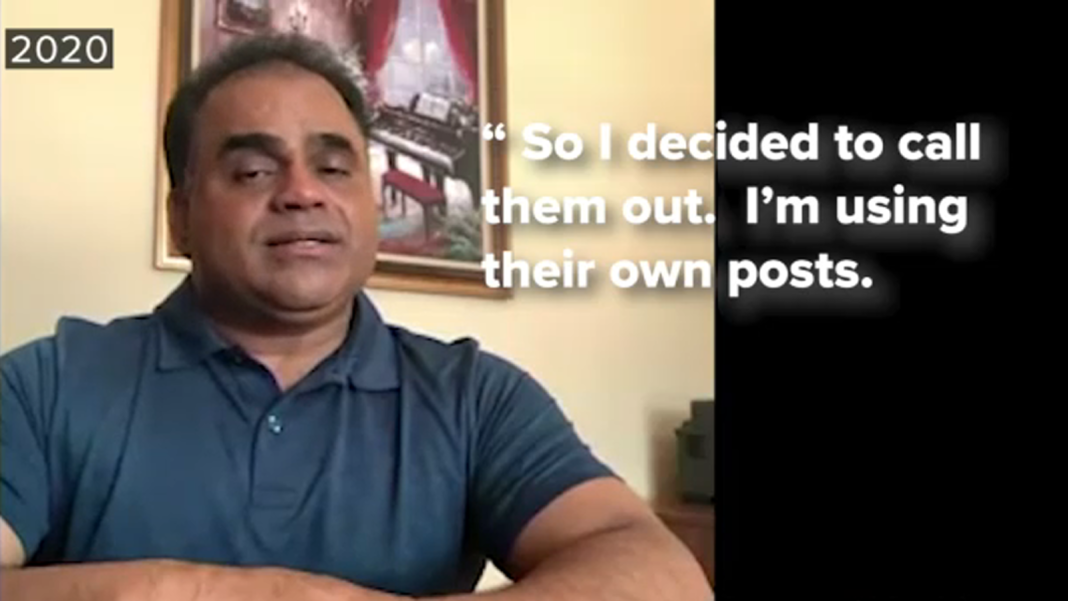In the vibrant tapestry of American politics, few threads are as complex and fraught as the interplay of race, identity, and social media. This narrative takes us to Fort Bend County, Texas, where the political landscape has recently been overshadowed by controversy involving County Judge KP George. The saga not only raises questions about the authenticity of social media discourse but also highlights broader societal issues regarding racism and the political exploitation of such sentiments.
In 2020, Judge KP George, who made history as the first Indian-American elected to the position in Fort Bend County, found himself at the center of a storm when he shared a collage of xenophobic comments directed at him. These comments, steeped in a palpable disdain, included phrases like “How did Fort Bend County let a foreigner… an America hater become so powerful?” and “Go back to wherever you came from.” Such remarks exemplify the troubling undercurrents of racial animus that can surface in political discourse, particularly when individuals from minority backgrounds rise to prominence.
George’s decision to publicize these comments came at a time when racial tensions were palpable across the nation, exacerbated by the COVID-19 pandemic and the social justice movements that swept through various communities. In an interview conducted shortly after his post, George expressed satisfaction that his message resonated widely, stating, “It got a lot of attention, it should, because we need to denounce this.” His intent was clear: he aimed to shine a light on the insidious nature of racism, leveraging the very words of his detractors to underscore the urgency of the conversation.
However, the narrative took a dramatic turn when allegations surfaced regarding George’s own social media activity. Recent investigations have brought to light accusations that he fabricated racist posts in a bid to enhance his re-election campaign. While he has not faced charges regarding the 2020 posts that he initially shared, the current allegations cast a long shadow over his political integrity. The criminal charges related to the 2022 posts have ignited discussions about the ethical boundaries of political campaigning and the potential for social media platforms to distort reality.
The implications of this unfolding drama extend beyond the individual. Experts suggest that such incidents can contribute to a general erosion of trust in political figures and institutions, particularly among younger voters who rely heavily on social media for news and information. A 2023 study published in the Journal of Political Communication noted that misinformation and sensationalism on social media can lead to increased cynicism toward political processes and figures, particularly among marginalized communities who feel their voices are often drowned out or misrepresented.
As the story continues to unfold, it raises critical questions about the nature of political discourse in an age dominated by digital communication. Are social media platforms amplifying genuine expressions of racism, or are they being manipulated to serve political ends? And how should voters navigate a landscape where the lines between reality and fabrication are increasingly blurred?
In the case of KP George, the intersection of race, identity, and political ambition has revealed deep-seated societal issues that merit serious reflection. As communities grapple with these challenges, the need for transparency, accountability, and a commitment to truth in political dialogue has never been more pressing. In an era where every tweet and post can be scrutinized, the responsibility lies not only with public figures but also with constituents to demand integrity and authenticity in their leaders.
This evolving narrative serves as a stark reminder that while social media can be a powerful tool for advocacy and change, it also has the potential to distort reality and manipulate public perception. As we move forward, it is essential to remain vigilant, critically examining the information we consume and the motives behind it, ensuring that the call for justice and equality is not drowned out by the noise of political gamesmanship.

